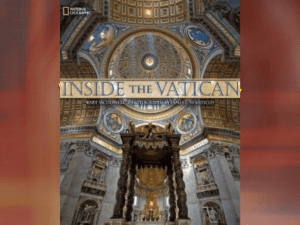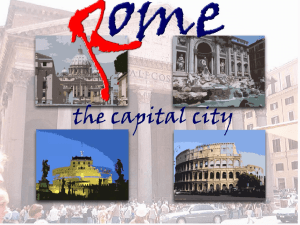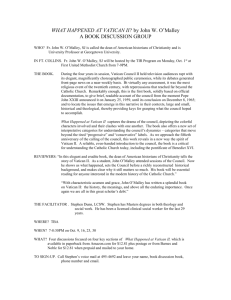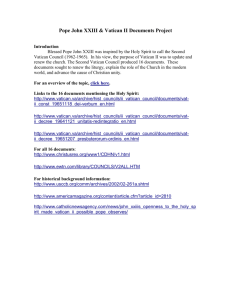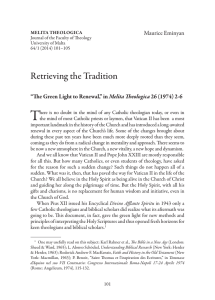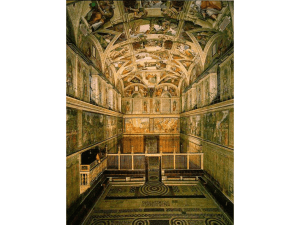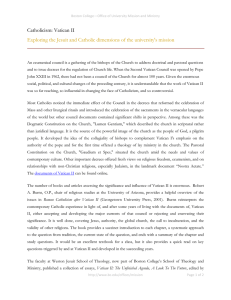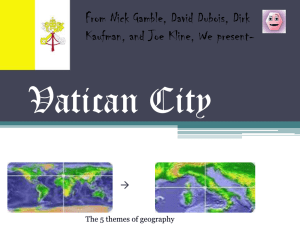Tour of Vatican City 2
advertisement
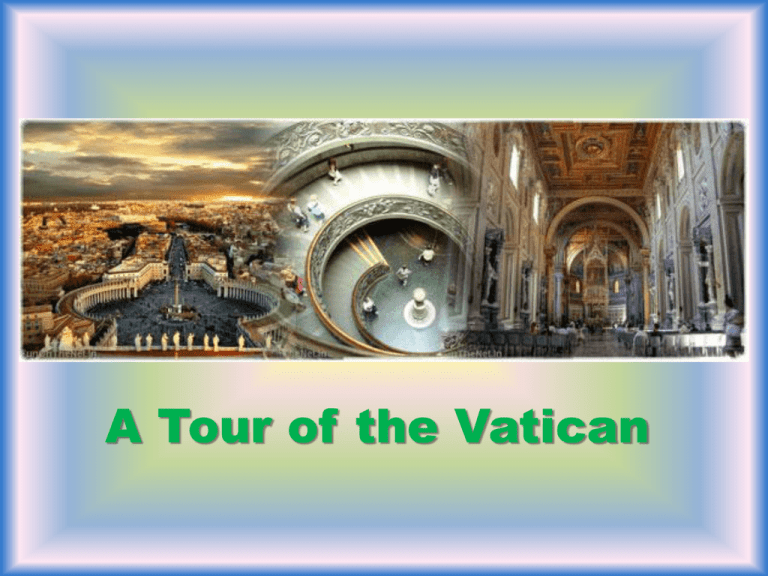
A Tour of the Vatican Status • Vatican City officially the State of the Vatican City is a landlocked sovereign city-state whose territory consists of a walled enclave within the city of Rome. At approximately 44 hectares (110 acres), and with a population of around 800, it is the smallest independent state in the world by both population and area. The Piazza Seen from St. Peter’s St. Peter’s Basilica Castel Sant Angelo • The Vatican City is a city-state that came into existence in 1929 and is thus clearly distinct from the central authority of the Roman Catholic Church, known as the Holy See, which existed long before 1929. Ordinances of Vatican City are published in Italian. Official documents of the Holy See are issued mainly in Latin. The two entities even have distinct passports: the Holy See, not being a country, only issues diplomatic and service passports; the state of Vatican City issues normal passports. In both cases the number of passports issued is extremely limited. Sistine Chapel The Creation of Adam – Centerpiece of the Sistine Chapel Ceiling by Michelangelo The whole Sistine Chapel ceiling – it’s difficult to get it all in one picture. Much of the Bible is illustrated on the walls and ceiling of the Sistine Chapel. Courtyard part of the Vatican Museum Ariel view of Vatican City • The Lateran Treaty in 1929, which brought the city-state into existence, spoke of it as a new creation (Preamble and Article III), not as a vestige of the much larger Papal States (756-1870) that had previously encompassed central Italy. Most of this territory was absorbed into the Kingdom of Italy in 1860, and the final portion, namely the city of Rome with a small area close to it, ten years later, in 1870. St. Peter’s & the Vatican Museum comprise one of the greatest repositories of art in the world. Vatican Museum Governance • Vatican City is a non-hereditary, elected monarchy that is ruled by the Bishop of Rome — the Pope. The highest state functionaries are all clergymen of the Catholic Church. It is the sovereign territory of the Holy See (Sancta Sedes) and the location of the Pope's residence, referred to as the Apostolic Palace. The Pieta by Michelangelo is housed in St. Peter’s Basilica. The Pope’s Residence • The Popes have resided in the area that in 1929 became the Vatican City only since the return from Avignon in 1377. Previously, they resided in the Lateran Palace on the Caelian Hill on the opposite side of Rome, which was out of repair in 1377. The signing of the agreements that established the new state took place in the latter building, giving rise to the name of Lateran Pacts, by which they are known. Vatican Gardens Cultural Treasure • The Vatican City is itself of great cultural significance. Buildings such as St. Peter's Basilica and the Sistine Chapel are home to some of the most famous art in the world, which includes works by artists such as Botticelli, Bernini, Raphael and Michelangelo. The Vatican Library and the collections of the Vatican Museums are of the highest historical, scientific and cultural importance. Rome viewed from the dome of St. Peter’s Basilica Sculpture in St. Peter’s World Heritage Site • In 1984, the Vatican was added by UNESCO to the List of World Heritage Sites; it is the only one to consist of an entire state. Furthermore, it is the only site to date registered with the UNESCO as a centre containing monuments in the "International Register of Cultural Property under Special Protection" according to the 1954 Hague Convention for the Protection of Cultural Property in the Event of Armed Conflict. Dome of St. Peter’s Exterior shot of the dome of St. Peter’s Looking toward the main altar in St. Peter’s The Main Altar Much of the art in St. Peter’s seems to be a celebration of the Papacy. Tomb of Pope John XXIII – most visited part of St. Peter’s Basilica
